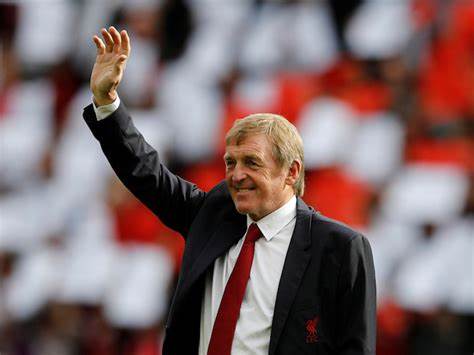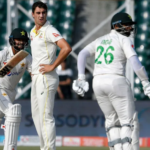Welcome to a journey through time, back to the era when Scottish soccer witnessed the emergence of a true legend. Picture yourself amidst roaring crowds, electric atmosphere, and awe-inspiring talent gracing the pitch. We are about to dive deep into the early career highlights of none other than Kenny Dalglish –a name that has become synonymous with football excellence worldwide. From his humble beginnings in Glasgow’s streets to etching his mark on the grandest stages of international football, join us as we relive the remarkable rise of this Scottish sensation who would change the game forever. Grab your front-row seat as we embark on an unforgettable adventure celebrating one man’s extraordinary journey towards becoming a sporting icon.
Introduction to Kenny Dalglish and his impact on Scottish football:
Kenny Dalglish is a legendary figure in Scottish football, known for his exceptional skills as a player and manager. He was born on March 4th, 1951 in the small town of Glasgow, Scotland. From a young age, Dalglish showed great passion and talent for the game of football. He started playing for local clubs such as Cumbernauld United and then moved on to play for renowned Scottish club Celtic.
At Celtic, Dalglish quickly established himself as one of the most promising players in the country. His dribbling abilities, passing accuracy, and clinical finishing made him stand out among his peers. It was not long before he caught the attention of other major clubs in Scotland.
In 1977, Dalglish made a historic move to English club Liverpool FC for a record fee at that time. This transfer marked the beginning of an illustrious career for Dalglish which would see him become one of the greatest players in both Scottish and English football history.
| Personal information | |||
|---|---|---|---|
| Full name | Kenneth Mathieson Dalglish | ||
| Date of birth | 4 March 1951 | ||
| Place of birth | Glasgow, Scotland | ||
| Height | 5 ft 8 in (1.73 m)[2] | ||
| Position(s) | Forward | ||
| Youth career | |||
| 1967–1968 | Cumbernauld United | ||
| 1968–1969 | Celtic | ||
| Senior career* | |||
| Years | Team | ||
| 1969–1977 | Celtic | 204 | (111) |
| 1977–1990 | Liverpool | 355 | (118) |
| Total | 559 | (229) | |
| International career | |||
| 1972–1976 | Scotland U23 | 4 | (2) |
| 1971–1986 | Scotland | 102 | (30) |
| Managerial career | |||
| 1985–1991 | Liverpool | ||
| 1991–1995 | Blackburn Rovers | ||
| 1997–1998 | Newcastle United | ||
| 2000 | Celtic (temporary) | ||
| 2011–2012 | Liverpool | ||
Dalglish’s Impact on Scottish Football:
Dalglish’s impact on Scottish football cannot be overstated. He was instrumental in helping Celtic win numerous domestic titles including four league titles and four League Cups during his seven-year stint at the club. His partnership with fellow striker George McCluskey was lethal, with both players scoring crucial goals to secure victories for their team.
Early Life and Career Beginnings of Kenny Dalglish
Early Life:
Kenny Dalglish was born on March 4, 1951 in Glasgow, Scotland. His family lived in a small flat in the Parkhead district of Glasgow, and he was raised by his parents William and Christina along with his older sister Carol. Growing up, football wasn’t just a sport for Dalglish, it was a way of life. He began playing at a young age with local youth teams and quickly showed promise as a talented player.
Career Beginnings:
At the age of 15, Dalglish joined Scottish club Celtic’s youth team and continued to impress with his skills and determination. In 1968, at the age of 17, he signed his first professional contract with Celtic and made his debut for the first team later that year. It wasn’t long before Dalglish became an integral part of the Celtic squad, helping them win four Scottish League titles and four Scottish Cups during his time there.
During this period, Dalglish also earned recognition at the international level when he played for Scotland’s under-23 team. He then went on to earn his first senior cap for Scotland in May 1971 at just 20 years old.
Dalglish’s success didn’t go unnoticed, and soon he caught the eye of English clubs looking to sign him. In August 1977, Liverpool manager Bob Paisley paid a then British record transfer fee of £44000 to bring him to Anfield.
Joining Celtic FC: Highlights and Achievements
In the early stages of his career, Kenny Dalglish’s talent on the football field quickly caught the attention of renowned Scottish club Celtic FC. After impressing in youth teams and local leagues, Dalglish joined Celtic at just 17 years old.
Dalglish made his first team debut for Celtic in October 1968 against Raith Rovers, scoring his first goal within months of joining the club. He quickly became a key player for Celtic, showcasing his incredible technical skills, football intelligence and finishing abilities.
During his time at Celtic, Dalglish went on to make over 200 appearances and scored an impressive 112 goals. He played a crucial role in helping the team win several trophies and cemented himself as one of their most successful players.
One of Dalglish’s early achievements with Celtic was winning the Scottish First Division title in the 1970-1971 season. The young striker contributed significantly to this victory, scoring an impressive 15 goals in just 25 league matches. He also helped lead the team to victory in the Scottish Cup that same season.
The following year, Dalglish continued to shine as he helped Celtic win another treble – this time earning them back-to-back Scottish First Division titles and a triumphant League Cup victory. His performance on the pitch earned him recognition from fans and critics alike, solidifying his reputation as one of Scotland’s rising football stars.
In addition to these domestic successes, Dalglish also had outstanding performances in European
Move to Liverpool FC: Rise to Stardom
Liverpool FC became a household name in the world of football during the 1970s, with players like Kevin Keegan and Ray Clemence leading them to domestic and European success. However, it was the arrival of a young Scottish player named Kenny Dalglish that truly solidified their place as one of the most dominant teams in English football.
Dalglish joined Liverpool FC in 1977 from Celtic FC, where he had already established himself as a promising talent. The transfer fee of £440,000 was considered hefty at the time, but it would prove to be one of Liverpool’s best investments.
Immediately upon his arrival at Anfield, Dalglish set about making a name for himself. His goalscoring ability and natural talent with the ball caught the eye of both fans and his teammates alike. He quickly became an integral part of Liverpool’s attacking force alongside fellow Scotsman Graeme Souness.
During his first season at Liverpool, Dalglish helped guide the team to their tenth league title and clinched the double by also winning the European Cup. He scored 31 goals in all competitions that season, cementing himself as one of Europe’s top strikers.
But it wasn’t just Dalglish’s technical abilities that made him stand out on the pitch; it was his incredible work ethic and determination that truly set him apart. He was known for his constant movement off the ball and ability to create space for himself and his teammates.
His combination play with Ian Rush
Dalglish as a Manager: Successes and Legacy at Liverpool FC
As a player, Kenny Dalglish is widely regarded as one of the greatest footballers in history, but his success did not stop there. After hanging up his boots in 1990, he transitioned into management and proved to be just as successful off the pitch as he was on it.
Dalglish’s managerial career began at Liverpool FC, the club where he had made a name for himself as a player. He took over as player-manager in 1985, at a time when the club was going through major changes following the retirement of legendary manager Bob Paisley. Many doubted whether Dalglish would be able to fill Paisley’s shoes and guide Liverpool to continued success.
However, Dalglish rose to the challenge and led Liverpool to an incredible period of dominance, winning three league titles (1986, 1988, 1990), two FA Cups (1986, 1989) and four Charity Shields (1986-1990). This cemented his status as one of the most successful managers in Liverpool’s history.
One of Dalglish’s most notable achievements during this time was guiding Liverpool to their first-ever league and cup double in the 1985-86 season. This feat had only been achieved by seven other English clubs before them and solidified Dalglish’s reputation as a master tactician.
In addition to his tactical nous, Dalglish also had a keen eye for talent. Under his guidance, players like Steve McMan
Return to Celtic FC: Final Playing Years and Retirement
After achieving great success with Liverpool FC, Kenny Dalglish returned to his childhood club Celtic FC in 1987 for his final playing years. At the age of 36, Dalglish’s return was met with much excitement and anticipation from both fans and his former teammates.
Dalglish’s first season with Celtic proved to be a successful one as he helped lead the team to win the Scottish Premier Division title. His experience and skill on the field were invaluable to the younger players on the team, and he quickly established himself as a leader both on and off the pitch.
In his second season back at Celtic, Dalglish continued to make an impact, scoring 14 goals in all competitions. He played a pivotal role in helping Celtic reach the UEFA Cup Final, but unfortunately, they were defeated by Dutch side Ajax.
Despite not winning the UEFA Cup, Dalglish’s presence brought back a sense of pride and glory to Celtic after years of disappointing performances. He showed that even at his age, he still had what it took to compete at a top level.
In his final playing year with Celtic, Dalglish continued to lead by example. He scored crucial goals throughout the season and helped secure the Scottish Premier Division title once again for his beloved club.
At 39 years old, Dalglish made his last appearance for Celtic against Hibernian FC in May 1990. It was a bittersweet moment for all involved as they said goodbye to not only one of
Impact on Scottish Football Beyond the Pitch
The impact of Kenny Dalglish on Scottish football goes far beyond his impressive achievements on the pitch. His rise to fame and success had a significant influence on the landscape of Scottish football, shaping it into what it is today.
One of the most notable impacts Dalglish had was in raising the profile of Scottish football both nationally and internationally. As a young player, he captured the attention of fans not only in Scotland but also across Europe with his talent and skill. This brought more exposure to Scottish clubs and players, who were previously overshadowed by their English counterparts.
Furthermore, Dalglish’s success at Celtic and then Liverpool helped put Scotland on the map as a producer of top-class players. He became a role model for aspiring young footballers in Scotland, showing that they too could achieve greatness at the highest level.
Dalglish’s influence extended beyond just his own playing career. As he transitioned into management, he continued to make an impact on Scottish football by bringing new ideas and techniques from his time working with some of Europe’s best teams. He also nurtured young talents like John Barnes and Steve McManaman while at Liverpool, further enhancing Scotland’s reputation as a breeding ground for future stars.
The financial impact of Dalglish cannot be overlooked either. During his time at Liverpool, he was involved in some big-money transfers that helped boost both club and country’s economy. This included selling Ian Rush for a then-record fee to Juventus and purchasing highly-rated Scottish striker Alan Hansen from
Conclusion: The Enduring Legacy of Kenny Dalglish
Kenny Dalglish’s impact on Scottish football and the global soccer scene is undeniable. From his humble beginnings in Glasgow to his legendary status as a player, manager, and ambassador for the sport, Dalglish has left an enduring legacy that continues to inspire both current and future generations.
Throughout his illustrious career, Dalglish achieved numerous accolades and broke several records. He made over 500 appearances for Celtic FC, won several league titles, cups, and European trophies with Liverpool FC, and became Scotland’s most capped player at the time of his retirement. These accomplishments alone are enough to solidify his place as one of the greatest players in British history.
However, it was not just Dalglish’s impressive list of accomplishments that cemented his legacy. It was also his innate talent on the field coupled with his unparalleled work ethic and dedication to the game. Dalglish was renowned for his technical ability, precision passing, incredible vision, and clinical finishing. He had an uncanny ability to read the game and make split-second decisions that often resulted in him scoring crucial goals or setting up teammates for scoring opportunities.
But beyond what he did on the pitch, Dalglish’s leadership qualities were perhaps what truly set him apart from other players. His passion for football was matched by a strong sense of responsibility towards his team and fans. As captain of both Celtic FC and Liverpool FC during their most successful years under Bill Shankly (1960s-1974) and Bob Pais








